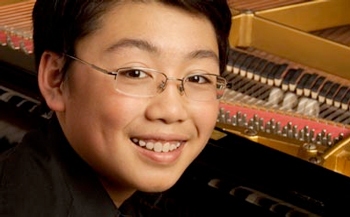by Allen Huszti, Guest Contributor

The first half of the recital included works by Beethoven and Schoenberg, the foremost composers of what we now call the First and Second Viennese Schools. Arnold Schoenberg’s, Sechs Kleine Klavierstücke (Six Little Piano Pieces), op. 19, opened the program. Together, the six pieces last only about four minutes and are excellent examples of expressionism in music — the kind of music that makes the listener hold his breath in wonder or awe. Li’s playing was marked by a high degree of sensitivity.
The Schoenberg was followed by an unusually coherent reading of Beethoven’s Sonata in C Minor, op. 111. Li performed the allegro con brio part of the first movement with great taste — playing forcefully but always musically. He found elegant lyricism in the second movement.
Both the Schoenberg and Beethoven demonstrated restraint in their own way. The conciseness of Schoenberg’s musical economy and the classical aesthetics of Beethoven were clearly reflected in Li’s playing.
The remainder of the program could be called the ‘pyrotechnical’ section. Two fiendishly difficult works demonstrated George Li’s command of the piano, and again reminded the audience why he won the Cooper Competition.
This half of the evening was devoted to two compositions, Rachmaninoff’s Variations on a theme of Corelli, op. 32, and Ravel’s La Valse. No longer a single solo instrument as earlier in the recital, the piano now became an orchestra with rich timbres and louder dynamics.
Rachmaninoff’s treatment of the La folia tune used by Corelli in one of his violin sonatas expands the chromaticism, uses more complex chords and utilizes the entire range of the piano, giving Li the opportunity to show his musical and technical prowess.
Ravel himself made the solo piano transcription of his well-known orchestral work. Li’s performance was stunning. He surmounted all of Ravel’s technical difficulties with apparent ease.
The audience gave Li an enthusiastic standing ovation. Li showed his youthful energy by performing two encores to the delight of all. The first was Liszt’s arrangement of Schumann’s Widmung, the second, Vladimir Horowitz’s Carmen Variations.
Allen Huszti is Emeritus Professor of Music at Sweet Briar College. He lives in Oberlin.
Published on ClevelandClassical.com March 4, 2014
Click here for a printable version of this article.


